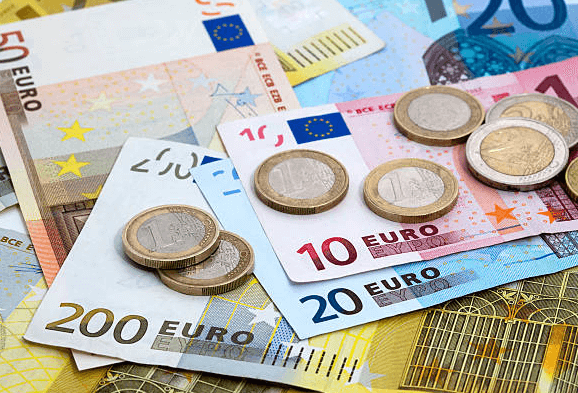Let's talk about Cyprus National Currency. Cyprus, a picturesque island nation in the Mediterranean, boasts a rich history and culture, along with its unique economic landscape. One of the pivotal aspects of Cyprus's economic system is its national currency, which is the Euro. In this article, we will delve into the significance of the Euro as Cyprus's national currency, its historical context, its impact on the economy, and address common questions surrounding it.
Understanding the Euro: Cyprus National Currency
The Euro, denoted by the symbol € and currency code EUR, serves as Cyprus's official currency since its adoption on January 1, 2008. This adoption marked a significant milestone in Cyprus's economic integration with the European Union (EU) and the Eurozone. The Euro's introduction aimed to foster economic stability, streamline transactions, and strengthen trade ties.
Historical Background of the Cyprus National Currency
Cyprus's journey towards adopting the Euro began when the country joined the EU in 2004. The decision to replace the Cypriot pound with the Euro was driven by the desire to align with EU economic policies and eliminate currency exchange rate risks. The Euro's adoption also symbolized Cyprus's commitment to a unified Europe.
Economic Implications of Adopting the Euro
The introduction of the Euro in Cyprus had far-reaching economic implications. It eliminated the need for currency conversion, simplifying cross-border trade and tourism. The common currency boosted consumer confidence, foreign investment, and economic growth. Moreover, it facilitated comparative price analysis and enhanced price transparency.
Advantages of the Euro for Cyprus
The Euro brought several advantages to Cyprus. It enhanced financial stability by connecting the country to the larger EU financial system. This connection provided access to broader markets, lower borrowing costs, and improved liquidity. Additionally, the Euro reduced transaction costs and exchange rate risks, stimulating international trade.
Cyprus National Currency: Challenges and Criticisms
While the Euro had positive effects, challenges and criticisms emerged. Some critics argued that Cyprus relinquished control over its monetary policy, limiting its ability to respond to domestic economic shocks. Moreover, the Euro's adoption heightened vulnerability to EU-wide economic downturns, as Cyprus's economic fate became intertwined with that of other Eurozone members.
Euro and Tourism in Cyprus
The Euro's impact on Cyprus's tourism industry was noteworthy. The simplified currency structure made it easier for tourists to understand prices, leading to increased visitor satisfaction. However, concerns regarding potential price inflation arose. Despite these concerns, the Euro's introduction streamlined transactions for the hospitality sector.
The Euro’s Role in International Trade
The Euro's acceptance as a major global currency bolstered Cyprus's international trade efforts. Businesses found it advantageous to conduct transactions in a stable currency widely used in international trade. This increased Cyprus's visibility and competitiveness in the global market.
Cyprus’s Euro Coins and Banknotes
The physical manifestation of the Euro in Cyprus can be seen through its unique coins and banknotes. The Cypriot Euro coins feature national symbols, historic figures, and cultural motifs, celebrating the island's heritage. These coins are not only legal tender within Cyprus but also represent its identity in the broader European context.
Maintaining Price Stability through the Cyprus National Currency
Price stability is a cornerstone of Cyprus's economic policy. By adopting the Euro, Cyprus aligned itself with the European Central Bank's commitment to maintaining low and stable inflation. This stability fosters investor confidence and encourages sustainable economic growth.
Cyprus’s Financial Sector and the Euro
The Euro's introduction prompted changes in Cyprus's financial sector. It facilitated access to diverse financial services, making Cyprus an attractive destination for international investors. The country's banking and financial systems became better integrated with the global economy, enhancing its overall economic resilience.
Euro’s Impact on Investment and Business
The Euro's stability positively impacted Cyprus's investment climate. With reduced exchange rate risks, foreign investors felt more secure in committing to the country's economic development. This influx of investment led to infrastructure improvements, increased job opportunities, and technological advancements.
Cyprus National Currency’s Influence on Inflation
The Euro's influence on inflation in Cyprus was notable. While the transition to the Euro initially led to some price adjustments, the long-term impact resulted in more stable and predictable inflation rates. This predictability fosters economic planning and consumer trust.
Safeguarding the Euro: Anti-Counterfeiting Measures
To protect the integrity of the Euro, Cyprus has implemented stringent anti-counterfeiting measures. These measures include the integration of advanced security features into banknotes and coins, making them more difficult to replicate. This ensures that the currency retains its credibility and value.
Cyprus’s Euro Membership and the European Union
Cyprus's Euro membership solidified its place within the European Union. It marked the country's commitment to shared economic policies, cooperation, and solidarity with other EU member states. The Euro's unifying role extends beyond the realm of economics, fostering a sense of unity among nations.
Conclusion: Cyprus’s Euro Journey
The adoption of the Euro has been a transformative journey for Cyprus. From economic stability and increased trade to enhanced tourism and global recognition, the Euro's impact is undeniable. As Cyprus continues to navigate its economic path within the Eurozone, its unique identity and European integration remain intertwined.
FAQs about Cyprus National Currency
Q1: When did Cyprus adopt the Euro?
A1: Cyprus adopted the Euro as its national currency on January 1, 2008.
Q2: What were the motivations behind adopting the Euro?
A2: Cyprus aimed to align with EU economic policies, eliminate exchange rate risks, and foster economic stability.
Q3: How did the Euro impact Cyprus's tourism industry?
A3: The Euro simplified currency transactions for tourists, contributing to enhanced visitor satisfaction.
Q4: What are the advantages of the Euro for Cyprus's financial sector?
A4: The Euro facilitated access to international financial markets, lower borrowing costs, and improved liquidity.
Q5: How did the Euro influence Cyprus's inflation rates?
A5: The Euro led to more stable and predictable inflation rates, aiding economic planning and consumer trust.
References
- European Central Bank. (2023). Euro. https://www.ecb.europa.eu/euro/html/index.en.html
- Cyprus Ministry of Finance. (2023). The Euro Changeover. https://www.mof.gov.cy/mof/mof.nsf/DMLindex_en/DMLindex_en?OpenDocument
- European Commission. (2023). Economic and Financial Affairs - Cyprus. https://ec.europa.eu/info/business-economy-euro/economic-performance-and-forecasts/economic-performance-country/cyprus_en
